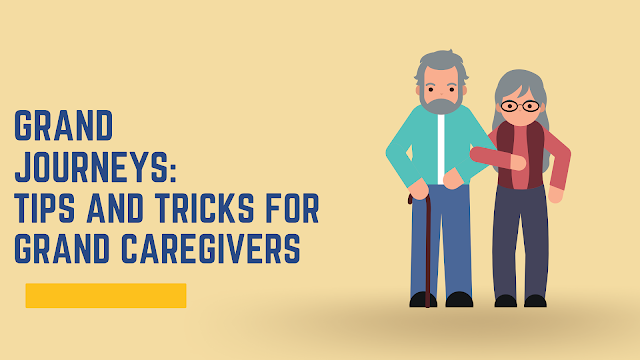By Kara Jackman
My grandmother was a huge part of my days recovering from surgeries. She would bring her pastel crocheted blanket to the living room, and create a makeshift bed out of the loveseat in front of the TV. I remember these days fondly, and I am sure she did, too, as she was able to put her nursing assistant skills to work with her own granddaughter. Grandparents, along with family and friends who act in a grandparent-like capacity are a vital part of the family network that supports children and individuals affected by facial differences. They care for us, their kids, and their grandbabies in so many different ways.
Encouragement and moral support is one way to help support the family member with a child with a craniofacial difference. As a grandparent there is not much you can do to take away the suffering of your grandchild, but there are ways to smooth the inevitable bumps in the road, like major surgeries and other medical care. You can send text messages, write positive notes, volunteer to babysit, and write positive affirmations to encourage caretakers to stay positive in front of their affected child. Care packages sent to the hospital, or packed before a big surgery are also a welcome support, too. Things like quarters for the vending machines, favorite drinks, snacks, and chocolate can go a long way in making them feel your love from a distance. Another wonderful tradition we heard about from the Laugharn/Lance family is the “Surgery Eve Sendoff.” Before a big procedure or surgery, both sets of grandparents take the family out for pizza. It’s a nice way to bolster both your children and grandchild(ren)’s spirits and something to look forward to amidst the anxiousness.
Though you may not be front and center for your grandchild’s medical care, you may be there when others in your community ask questions about the child or individual. Be ready with some prepared responses to likely questions like “Why do her eyes look different?” or “What is wrong with her face?” Melanie Howington, a grandparent who just hosted a webinar for grandparents called Grand Journeys, recommends sharing something about what makes the inquirer unique. “God made her with big eyes, and you have beautiful curly hair that God gave you.” “She has a bigger head so that her brain can grow.” If a parent or another caregiver is nearby, invite them into the conversation, and don’t allow them to “shush” the child or tell them to look away. Children are often just curious, scanning for differences. Reassure the other parents that it is okay to ask questions, if you are comfortable responding to them.
Being a support person during the tough times around questions and teasing is one thing, but what about the trauma that your grandkids experience at the hospital during medical appointments and surgeries? Some of our grandparents suggest keeping an eye out on their outlook on life, emotional wellbeing, and social emotional interactions with others. “Reassure them that each surgery or medical intervention is for a reason, to breathe or eat better,” Melanie says. Siblings can help reassure too, because they are often the greatest ally the affected child has in their life.
For days when the child will be in the hospital, suggest to the parents that a child life specialist be in attendance before surgeries or at medical appointments that might be scary. They have a whole host of tips, tricks, and games to keep kids distracted. Grandparents can help remind parents to model a positive, calm demeanor. The child will pick up on any worry and upset that the caregiver shows. Modeling an easy manner is vital to keeping trauma at bay. Melanie shares that a doctor told her that you can “raise a child differently and she will be different, or raise them just like you would any other child.” Encouraging caregivers and parents to normalize the hospital, medical equipment, and other things in the family’s life will help immeasurably.
Maybe the most difficult part of being a grandparent is watching your child become a parent to a child born with special needs. There is so much grief and pain that you, as the grandparent, should acknowledge and validate. Don’t go overboard by bursting into the family dynamic to swoop in and save the day. Ask yourself is this a good time for me to step back or step in to help? Listening to what the parents or caregivers needs are in the moment, and honoring them is important to keeping the larger family dynamic healthy and happy. The family needs to have as close to a typical family experience as possible. Excellent awareness around boundaries will help you accomplish this seemingly monumental task.
The ultimate goal of being a great grandparent or grand figure in the life of a child with a craniofacial difference is to be loving, fun, and encouraging. This should be your goal and role with all your grandchildren. Your children are strong, and supported by being part of the CCA family. They can do the hard things, too, with your loving guidance. The future will be bright for this next generation of CCA adults because of the impact you have on their lives.


No comments:
Post a Comment
We welcome and encourage all readers to post feedback, however, we reserve the right to remove any comments that are deemed offensive or unrelated to the topic of discussion. Thank you for understanding and for helping us to foster a healthy environment for the families that we serve.